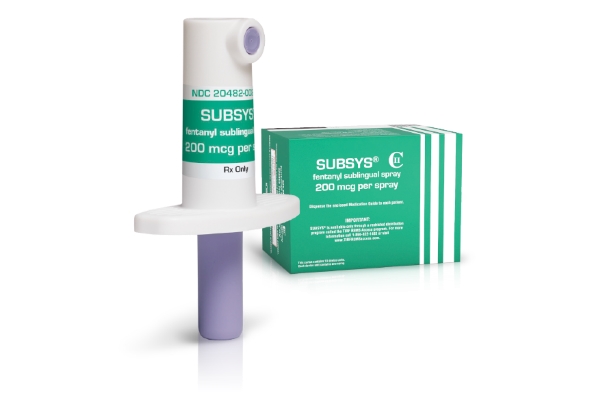
Pharmaceutical firm Insys Therapeutics has been publicly accused of stoking the fentanyl opioid epidemic in the US through dodgy business tactics.
The Arizona-based company deployed "significant efforts… undertaken to reduce barriers to the prescription of Subsys, its powerful fentanyl product" that is approved to treat breakthrough pain from cancer, according to a report published by US Senator Claire McCaskill.
These efforts include actions to mislead pharmacy benefit managers (PBMs) and falsifying medical histories of patients in order to obtain prescriptions and to ensure off-label use. Insys also "lacked even basic measures to prevent its employees from manipulating the prior authorization process", required to obtain fentanyl, the report claims based on documents received from the firm.
The accusations are published in a report in response to the growing opioid epidemic in the US that has claimed 64,000 lives just last year – a 22 per cent rise on 2015. Figures from the Department of Health and Human Services (DHHS) also show that Medicare Part D spending on commonly abused opioids increased 165 per cent between 2006 and 2015, and one out of three Part D recipients received at least one prescription opioid in 2016 at a cost of $4.1bn.
Heroin and the abuse of addictive prescription-only opioid painkillers have contributed to the epidemic but in the past year or so the situation has been exacerbated by the influx of counterfeit prescription drugs and heroin that have been laced with fentanyl, which is 50 to 100 time stronger than morphine.
Drug deaths involving fentanyl more than doubled from 2015 to 2016 to more than 20,000, an increase of 540 per cent in three years, according to the most recent report from the National Centre for Health Statistics.
Sen. McCaskill has pointed some of the blame for the growth of the epidemic at the pharmaceutical companies that manufacture opioids, such as Insys Therapeutics.
Earlier this year, she issued wide-ranging requests for documents related to opioid sales and marketing efforts from five such manufacturers – Insys, Depomed, Johnson & Johnson, Mylan and Purdue. The requests focused on internal estimates concerning the risk of opioid addiction, compliance audits and reports concerning sales and marketing policies, marketing and business plans, materials related to manufacturer payments to physicians and manufacturer-created physician presentations, funding of educational materials targeted to opioid-prescribing physicians, and funding for major pain advocacy groups and other groups.
To prevent the over prescription and abuse of powerful and expensive drugs like Subsys, insurers, often using PBMs, employ a process known as prior authorisation, which is essentially additional approval from the insurer or PBM, and which requires meeting certain criteria, before the drug can be dispensed.
In the case of Insys, which is already facing several lawsuits over its marketing practices of the drug, documents revealed an audio recording where Insys employees repeatedly misled a pharmacy benefits manager by claiming to call from a doctor's office to obtain prescription approval for a patient, who later died "due to allegedly improper and excessive Subsys use".
Insys also allegedly created a prior authorisation unit, known at one point as the Insys Reimbursement Center (IRC), to intervene with PBMs and secure reimbursements. According to McCaskill's report, "employees reportedly received significant financial incentives and management pressure – including quotas and group and individual bonuses – to boost the rate of Subsys authorisations". Employees reportedly falsified medical histories for prospective Subsys patients fraudulently asserting that the patient had a cancer diagnosis and called PMBs claiming they were calling from a doctor's office or were calling on behalf of the patient's doctor.
"According to public reporting, lawsuits from Subsys patients, and criminal indictments, Insys Therapeutics has repeatedly employed aggressive and likely illegal techniques to boost prescriptions for its fentanyl product Subsys," the report said. "These efforts have included actions to undermine critical safeguards in the prior authorisation process – with Insys officials aware, at the very least, of the serious danger of these acts occurring. The high stakes of opioid over prescription – including patient death – demand close attention to these practices by law enforcement officials, policymakers, and the PBMs charged with approving or rejecting fentanyl treatment."
In a statement, McCaskill said: "There is extensive evidence that Insys aggressively pressured its employees and the entire medical system to increase the use of a fentanyl product during a national epidemic that was taking the lives of tens pf thousands of Americans a year in order to make more money – it's hard to imagine anything more despicable. Their attempts to manipulate the prescription approval process for this drug appears to have been systemic and anyone responsible for this manipulation deserves to be prosecuted."
As part of the report, Insys was asked whether it had addressed the issues that had been highlighted in other reports and lawsuits. Insys president and chief executive Saeed Motahari said the company had "completely transformed its employee base over the last several years", including in "key management positions", and had "actively taken the appropriate steps to place ethical standards of conduct and patient interests at the heart of [its] business decisions".
In a statement in response to the report, the company said: "We agree with Senator McCaskill that the opioid epidemic must be addressed and we have therefore co-operated extensively with her investigation. We respectfully disagree with certain characterisations in the staff report. The report relates to activities of former employees of our company and matters that the company has addressed in its own efforts and in connection with investigations by the Department of Justice and state attorney general offices."
©
SecuringIndustry.com





